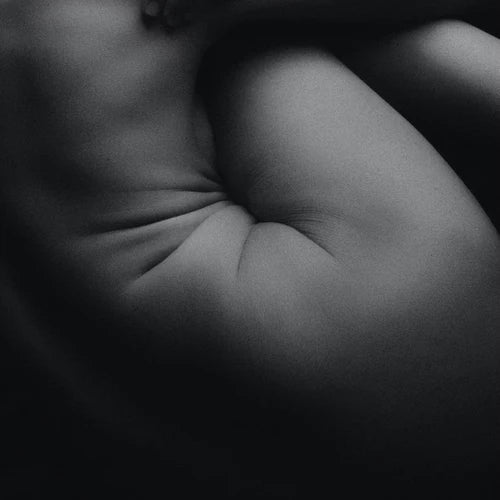There can be a lot of confusion surrounding the terms “vulva” and “vagina”, so you are certainly not alone if you’re a bit unsure of the difference. In our research* a whopping 87% of women were not taught about intimate care at school and 80% weren’t able to accurately identify the vulva. Understanding our own bodies can only be a great thing, so let's break down the differences between these two body parts with simple descriptions to help clear up any confusion.
The Vulva
The vulva refers to the external female genitalia that is visible from the outside, and includes the labia majora (the outer lips), labia minora (the inner lips), and clitoris.

The Vagina
The vagina, on the other hand, is the internal canal that runs from the cervix to the vulva. The vagina is the passage that leads from the uterus to the outside of the body, through which menstrual blood flows, and where sexual intercourse takes place.

Each has its own part to play
It's important to understand the difference between these two body parts, as they play different roles in the female anatomy. Understanding and taking care of the vulva and vagina can lead to better sexual health and overall wellbeing.
To clean or not to clean
We’ve gone into this in-depth on our blog “How to wash your vulva” written by our Founder Katy, but, just to put it simply - it’s a personal preference. Although it is not advised to clean your vagina (it is self-cleaning), the vulva can benefit from daily cleansing. The vulva is in fact very similar to the skin under our armpits - both covered in apocrine glands and likely to grow hair. So, just like any other body part, whether you want to rinse with water or use a gentle, pH-balanced product like Luna Daily, it’s your body and you know best.
Where Luna Daily can help
If you do feel like a wash is the right option for you then you want to look for pH-balanced products. The usual skin microbiome is between pH 4-5, so using products which match this will help keep a healthy skin surface in check. Soap, for example, is pH 12 (close to bleach at pH 13!) so it’s no wonder you might have felt dry or irritated skin after using it. And although your vulva may be outside your vagina ( which is naturally slightly more acidic) their close proximity can make your vulva more prone to sensitivity, so it’s important to protect the delicate balance of both. That’s why we have created a range of products with expert dermatologists and gynaecologists that help strengthen, nourish and protect all of your skin, even your most intimate areas like your vulva.
Changes with age
As we age, our hormones change and our bodies go through different stages - and the vagina and vulva are no exception. As you reach menopausal age you may find you lose thickness, and colour can change to a darker or paler pink. The clitoris can get smaller, the labia can loosen and you can feel more dry. The changes can be different for different women, but it’s important to note that all changes are completely normal. If you’re looking for a helping hand, our hydrating range protects against dryness while maintaining a healthy pH balance during menopause.
When we understand the differences between the vulva and the vagina, we can start to look after them both properly. Ask friends or family if they’re clear on what’s best for them or become a part of the amazing Luna Daily community (you can ask us anything!) and open up the conversation while taking care of all your skin safely - even your most intimate.
____________________
Featured: Luna Daily Collective member Dr Cheruba Prabakar, a Board Certified OBGYN, talks us through the anatomy of a Vagina vs. a Vulva here on TikTok. Check out more Luna Daily resources on our Instagram here.



